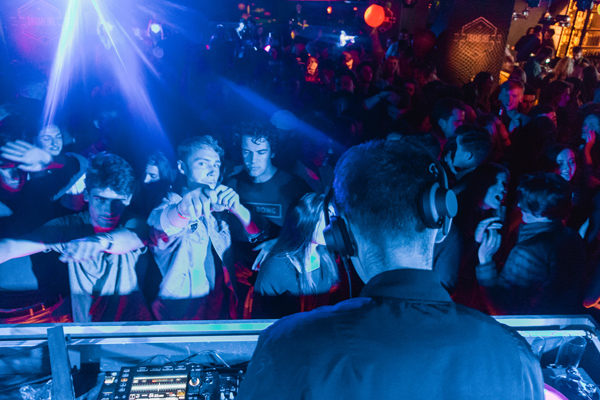
The music is loud, the drinks are flowing, and everyone is dancing their hearts out in the club. But then the lights come on, the magic is broken, and the whole crowd is being ushered out of the door onto the street by a group of unamused bouncers. The scene is a familiar one for many – the early closing times of Dublin’s nightclubs is a source of constant frustration.
However, there are those who are fighting to remedy this, and bring Dublin nightlife into this century with later closing times and more navigable licensing laws. Give Us the Night is a volunteer group at the forefront of this campaign, and for the final Trinity Arts Festival (TAF) Talk, members Sunil Sharpe and Robby Kitts spoke to students in the Graduates Memorial Building (GMB).
The group was formed in response to calls from the Gardaí to move club closing times to 1.30am, as they had insufficient resources to effectively police the city after this time. However, Give Us the Night started a petition, which gained significant public support and the plans were subsequently dropped. The focus has now turned to an overhaul of nightclub licensing and encouraging the opening of new, often smaller venues as well as saving those already in existence.
Currently, venues have to appeal on a monthly basis to the courts to gain approval for the specific nights they are open. They also must pay €410 a night in order to operate, meaning that clubs can be paying over €100,000 a year in order to operate compared to annual fees of only £2,000 in UK. The prices had previously been lower however, the introduction of the Intoxicating Liquor Act in 2008 dramatically increased them and this resulted in the loss of multiple smaller venues.
The issue of closures is still very much relevant today, as can be seen by the closures of Hangar and District 8 within the last year, and Kitts branded these “the last pieces to fall … and it only reflects that the small places are already gone”.
The group is currently calling for the creation of a license that caters specifically for nightclubs, and for fees to be based on annual turnover and the size of the venue itself. They pointed out that reductions to these licensing fees would likely encourage more frequent student nights, where drink sales are often lower, as venues would not be so dependent on bar revenue to make their profit.
They are also advocating for multi-purpose spaces, such as those that have seen significant success in Amsterdam. These clubs could provide valuable additions to the city’s cultural landscape as practice spaces for musicians or galleries while also providing greater choice to night-time revellers. More event-focused evenings would have the impact of reducing the level of excessive binge drinking, as it would give revellers a chance to spread their consumption rather than being forced to “pack it in” in the limited window of time that the club is open.
Kitts was keen to point out that students can play a part in encouraging these changes, stressing the importance of youth engagement with local elections: “A lot of the decisions that are affecting our everyday life … they have a lot to do with the council”. Then, after citing the influence of the youth vote in the recent marriage equality and abortion referendums, he observed how impactful a similar reaction to local elections could be, as they are “elections that can be swung by hundreds of votes”.
Sharpe and Kitts gave brilliant insight into the complicated but very relevant issues that are affecting Dublin’s nightlife. Students engaged with multiple questions, and it is obvious that many of the audience were keen to get involved and help tackle the city’s shrinking nightlife.






